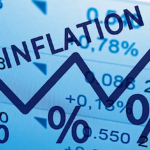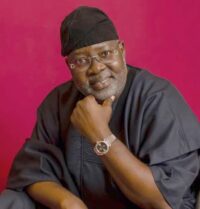By Chinenye Anuforo
The Nigerian Communications Commission (NCC) has disclosed that a bold shift in telecom pricing policy earlier this year has already triggered a wave of capital inflows that could see over $1 billion pumped into network infrastructure in 2025 , the largest investment in the sector in years.
Speaking during an interactive session with journalists in Lagos on Friday, the Executive Vice-Chairman (EVC), Aminu Maida, said the Commission’s January decision to allow market forces rather than government controls to determine service prices has restored investor confidence and spurred major network upgrades across the country.
“We took a tough but necessary decision to return to the principles that built this industry. By removing rigid price controls, operators can now compete fairly, reinvest profits, and attract the foreign capital we desperately need”, Maida said.
According to him, Nigeria had drifted for almost a decade from the pro-investment principles enshrined in the early 2000s telecoms reforms, operating instead under a quasi-price control regime that discouraged expansion. Mobile network operators’ tariffs had remained static for years while other players in the value chain could adjust for inflation and currency changes.
He disclosed that equipment ordered earlier in the year began arriving in June, with some operators including one that had not purchased new hardware for three years, now expanding and modernising their networks.
“This industry requires continuous investment; no one is waiting for us. Globally, people are already talking about 6G while we are still closing the gap on 5G,” he said.
He noted that Nigeria still depends almost entirely on imported telecom hardware and software, as only three countries,China, Finland, and Sweden manufacture most of the equipment used worldwide. This, he said, makes foreign investment critical for both local and multinational operators.
The NCC chief also addressed persistent challenges threatening telecom operations, including vandalism, theft of diesel and generators, and difficulties in securing sites for new base stations. The industry consumes over 40 million litres of diesel monthly, much of it imported, making operational security a top concern.
To address this, Maida said the NCC has revised security guidelines for telecom sites and is working with communities to raise awareness about the importance of protecting network facilities. “Sometimes people don’t realise that shutting down a mast or vandalising equipment disrupts the very service they depend on daily,” he explained.
The Commission is also engaging security agencies and state governments to treat telecom installations as Critical National Infrastructure. Maida warned that while tax authorities have the right to collect revenues, shutting down such infrastructure over disputes is unacceptable.
Highlighting the need for better coordination between stakeholders, Maida revealed plans for an inter-agency platform to share information and resolve conflicts before they disrupt services. The NCC is finalising a memorandum of understanding with the Federal Ministry of Works and engaging key states to align infrastructure projects with telecom needs.
He also said that the Commission, in collaboration with the Office of the National Security Adviser, is working on a framework for a nationwide rapid response force to protect telecom infrastructure. The force would be tailored to regional security realities from riverine areas to high-risk inland communities.
The NCC boss expressed optimism that the combination of pricing reforms, infrastructure investment, and stronger security measures would mark a turning point for Nigeria’s telecom sector.
“By the end of this year, we expect to see over a billion dollars in cumulative investment in core infrastructure. This wasn’t happening in 2020 or 2022. Something big has been triggered and I believe it is the reforms we made,” he said.

















Leave a comment